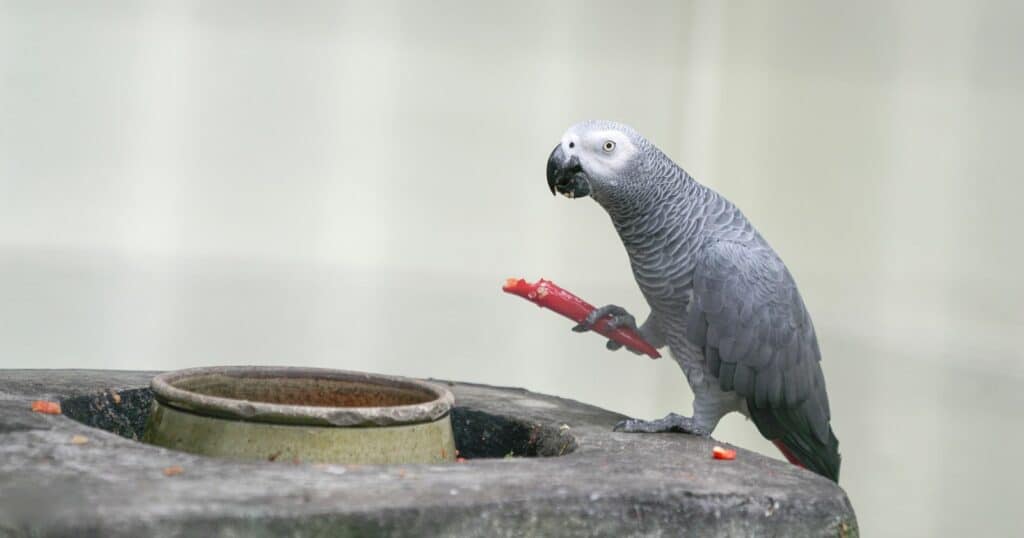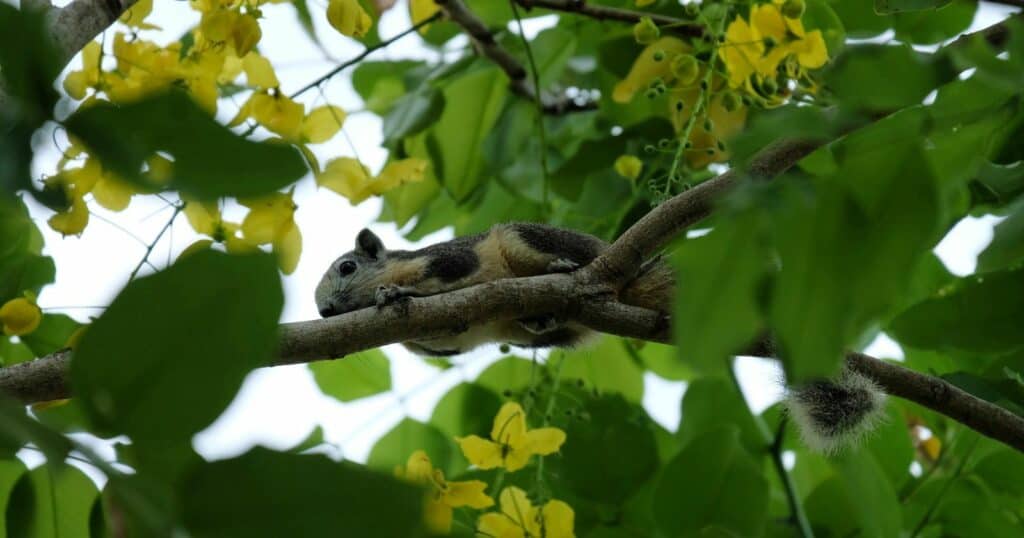For
Surprisingly, most animals are unaffected by the searing heat of hot peppers. Creatures like birds, frogs, and lizards munch on scorching chiles without even flinching.
These beasts lack the specific receptors that allow us to sense the
This article explores why peppers don’t faze various animals, which critters do avoid the heat, and how to keep your garden safe from pilfering pepper lovers. You’ll learn:
- Which common animals readily eat hot peppers
- The science behind their immunity to
spice - Safety tips for feeding hot foods to pets
- Clever tricks to protect pepper plants
So while flaming hot chilies overwhelm human taste buds, we’re one of the only species bothered by their bite. Read on to find out why most animals think tabasco sauce is just plain dull!
Do Animals Feel the Spice In Hot Peppers?
For humans, the phytochemical capsaicin gives hot peppers their trademark kick. It binds to our pain receptors, signaling “hot” and “danger” to the brain.
But most animals lack these specific receptors. As a result, beasts like birds and insects don’t register the heat when they eat peppers.
So which animals chow down on scorching hot chiles without breaking a sweat?
Animals That Eat Hot Peppers
Here are the main animal groups that happily eat fiery peppers:
Birds

Birds of all types readily consume hot peppers and cause headaches for gardeners. Peppers don’t irritate birds’ digestive systems or taste buds. They forage on peppers to eat the nutritious seeds.
Insects
Bees, ants, and other insects don’t avoid hot peppers due to capsaicin irritation. Some pollinate pepper plants. Certain insects do detect and dislike the strong scent of some varieties.
Reptiles
Snakes, lizards, and turtles incorporate hot peppers into their diets without adverse effects. Zoos even feed chiles to reptiles with no issues.
Amphibians
Frogs and toads in pepper-growing regions are known to eat fallen ripe hot peppers near water sources. The capsaicin does not appear to bother or deter them.
Tree Shrews

A small mammal native to Southeast Asia, tree shrews have a genetic mutation that allows them to seek out and enjoy eating hot peppers and chili-laced foods.
Why Hot Peppers Don’t Bother These Animals
So why don’t hot peppers wreak havoc on these animals’ mouths and bodies? Let’s look at the science behind their heat immunity:
Lack of Capsaicin Receptors
Most animals lack the specific pain receptors (TRPV1) that bind to capsaicin in peppers and register “spicy hot” sensations. Without these receptors, animals don’t perceive the burning pungency.
Few or No Taste Buds
Some animals like birds have very few taste buds compared to humans. They don’t strongly detect flavors like sour, sweet, bitter, or heat. Peppers don’t overwhelm their limited taste perception.
Seek Seeds, Not Spice
Birds, the biggest hot pepper consumers, mainly eat peppers to ingest the nutritious seeds, not for the pleasure of
Genetic Mutations
In rare cases like the tree shrew, genetic changes have evolved, either deleting capsaicin receptors or making animals “immune” to the irritation. This allows them to seek out spicy foods.
Do Any Animals Dislike Eating Hot Peppers?
While most beasts are indifferent, some animals do avoid feasting on fiery peppers. Here’s why:
Scent Deterrent
Some insects and animals are repelled by the strong smells of certain pepper varieties, rather than the heat. The robust aroma signals the pepper is toxic or poisonous.
Gut Health Issues
If consumed in enormous quantities, peppers may cause stomach upset in animals not adapted to the diet. Most instinctively limit intake to reasonable amounts.
Predator Avoidance
Mammals like bears, big cats, and canines likely associate the strong pepper stench with potential danger, so they keep away. Self-preservation overrides temptation.
So for most creatures, hot peppers pose zero risk and zero flavor appeal. But what happens when humans feed chiles to their animal companions?
Can I Safely Feed Hot Peppers to Pets?
While birds and reptiles tolerate spicy foods, what about more sensitive pets like dogs, cats, and chickens? Here are some safety tips:
Dogs and Cats
Avoid purposefully feeding Fluffy and Fido hot peppers. The gastrointestinal irritation and inflammation can cause distress. Never let pets ingest pepper or chili plants.
Chickens
Small amounts of dried chile peppers may safely supplement commercial feed. But capsaicin-heavy fresh peppers can still cause upset when overfed. Monitor for runny droppings.
Reptile and Bird Pets
Assess individual pet tolerance since all animals differ. Start with tiny portions of dried peppers and watch for reactions. Don’t make hot foods a diet staple.
When in doubt, check with your veterinarian about the appropriateness of feeding spicy human foods to pets and farm animals. It’s better to be safe than sorry.
Protecting Pepper Plants from Pilfering Animals
If neighborhood critters are sneaking a snack from your pepper patch, deter them with these tips:
- Use fences, netting, and covers to create barriers around plants.
- Interplant strong-scented herbs like oregano and basil to disguise and confuse.
- Use non-toxic repellent sprays made with ingredients like garlic oil or hot pepper wax.
- Apply granular repellents around the perimeter – products with capsaicin or piperine work well.
- Scare off birds with old CDs hung on string, balloons, or owl decoys.
- Pick peppers as soon as they ripen – don’t leave any hanging.
- Bring potted pepper plants indoors if needed.
With some clever deterrents, you can stay one step ahead of pepper-loving pests!
Which Animals Love Hot Pepper Heat?
While most animals are immune to chili burn, two species actually crave the spicy sensation:
Humans
We’re the only mammals who intentionally seek out and enjoy the flavors of hot peppers and chili spices. The euphoric rush and flavor appeal keeps us coming back.
Tree Shrews
A recent discovery revealed that these small Southeast Asian mammals have evolved to willingly consume hot peppers thanks to a receptor mutation. They’re the only non-humans who love the burn.
So the next time you dig into some spicy wings or a pepper-loaded pizza, remember you’re one of just a few mammals who actually savors that fire!
The Bottom Line
When it comes to eating hot peppers, birds, insects, reptiles and most animals remain unphased by the spike in spiciness. They lack the receptors to sense the scorch.
A few creatures do intuitively avoid peppers though. And some pets may experience adverse effects if fed very spicy foods.
But for most beasts, those habaneros, ghost peppers, and jalapenos are just another bland, boring plant. It’s humans and our funky capsaicin-loving tastebuds that have all the fun!





